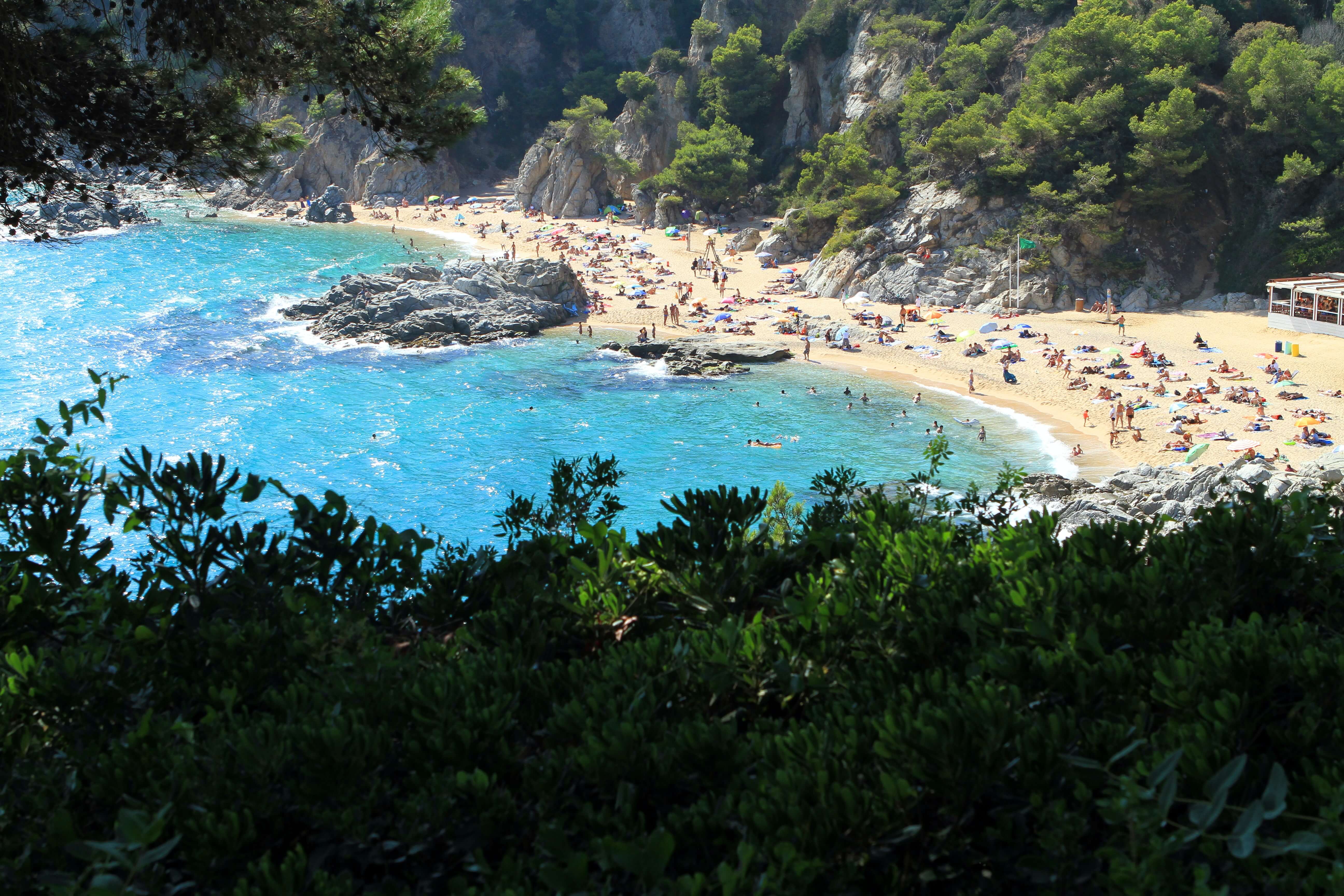November 24, 2021
December 3, 2020
I've lived in Spain for several years now, and since I have settled here with a job and a Spanish husband, I don't have any intention of moving away. That being said, expats sometimes find it hard to assimilate in other countries, and knowing the ins and outs of the country before moving is always a good idea. I love Spain, but moving here with a clear view of the country, its culture, its perks, and its shortfalls will help you maintain realistic expectations. To help you out, I will discuss my living in Spain pros and cons. Keep in mind that this post is written from the point of view of an American, so the same pros and cons might not apply in your case.
Living in Spain Pro: Diverse, social culture
If you’ve heard that Spain is a laid-back and relaxed country, you heard right.
Rich culture, bustling social life, endless leisure options... Spaniards truly know how to have fun and enjoy life. Spaniards love going out: to bars, to eat tapas, to museums, to people-watch at a café or in the plaza. They eat long lunches and dinners (often 2+ hours long), they prioritize family, and don’t expect anything to be open on Sundays.
Keep in mind that Spain is very diverse, and what you’ll experience in the south will differ from up north. Still, throughout Spain, it can be said that Spaniards are mostly accepting of people from all walks of life (LGBT, foreigners, etc.) They tend to be friendly and talkative (much to your dismay when the grocery store checkout is miles long). There won’t be much culture shock for Westerners, and there are large expat communities in big cities and many coastal areas/islands.
Living in Spain Con: Work culture
Although workers in Spain have decent rights and employment protections, the work culture in Spain has a lot of room for improvement. This article in El País sums if up pretty well, “Spaniards sleep fewer hours and work longer days than their European neighbors, but are less productive”.
Long lunches, lots of little breaks and time spent chatting with colleagues leads to low productivity and long working hours. Work hours range from 9am-6:00pm or 10am-7pm for office jobs, while shops open from 9am-2pm and then again from 5-8pm. Additionally, many workplaces make you take the majority of your vacation in summer. It can basically be said that in August, all of Spain is on vacation.
Other problems include little penetration of languages besides Spanish. And personal or family contacts are still important in achieving a job. Finally, there is a trend called “calentar la silla” - widespread throughout Spanish companies - which means that being seen in your chair, especially after your working hours, is seen as a good thing and a sign that you’re a dedicated worker. Until recently, Spanish companies were resistant to remote working practices.
Living in Spain Pro: Cost of Living
The cost of living in Spain is quite reasonable compared to other places in Europe. If you’re coming from areas like the United States, Australia, and Northern Europe, you’ll find a lower cost of living. Coming from South America, Southern/Eastern Europe, Africa, and Asia, the cost could be somewhat higher for certain things.
For one thing, big cities in Spain - like Madrid and Barcelona - are much cheaper when compared to their counterparts like London, Paris, New York, or Los Angeles. You’ll find low prices for healthcare and transportation, affordable food and dining prices, and reasonable prices for rents and utilities. One note could be that, compared to salaries, rent may take more of a chunk out of your monthly budget than normal.
Discover these posts about the Spain cost of living:
- Cost of Living in Madrid
- Cost of Living in Barcelona
- Cost of Living in Valencia
- Cost of Living in Seville
Living in Spain Con: Living Spaces
If you’re using to living in a house, get used to the apartment life! According to the BBC, “almost two-thirds of the [Spanish] population live in flats, the highest rate for any EU nation apart from Latvia”. The article goes on to state that this is mainly due to the high price of houses and their location (far away from city centers or workplaces).
Many apartments do not have outdoor spaces such as a garden, lawn, or patio, but some offer a balcony or terrace. Make sure to check if your apartment is interior or exterior, because this can influence the amount of sunlight or insulation you get. Also be aware that air-conditioning and heating units might not be installed in flats.
Living in Spain Pro: Healthcare system
Coming from a country where your healthcare is reliant on your job or a complex system of insurance policies, I find the healthcare system in Spain to be amazing. It’s well-know that Spain has one of the best healthcare systems in the world, with guaranteed basic and preventative care. Foreigners who work in Spain and retirees can also access the Social Security system.
If you qualify for public healthcare, you won’t have to pay anything to see the doctor or receive other essential services. Furthermore, if you require private healthcare due to your visa situation or special health requirements, private insurance policies are quite comprehensive and affordable. Many people prefer the language offerings and lack of wait times with private insurance. Discover Caser Health Insurance.
Living in Spain Con: Job Market
You’ll hear nearly every expat (and Spaniard) say it: “Spain would be the perfect place to live...if it had a better job market.” And this is the absolute truth. Unfortunately, Spain has one of the highest rates of unemployment in Europe, and the job market is extremely competitive.
Most young Spaniards are educated to the point of having a Bachelor’s and Master’s degree, and sometimes multiple degrees. Therefore, you’ll often find yourself competing with over-educated Spaniards with little to no work experience. Thousands of Spaniards go abroad to work due to the lack of opportunities in their home country.
Finally, salaries are low and stagnant. The 2008-2009 economic crisis, combined with the current pandemic, is going to see difficult years ahead for the Spanish economy and job market.

Living in Spain Pro: Cities and Towns
Spain has some of the best cities and towns in the world. Madrid is a bustling metropolis, where you can feel Spanish history with every step you take. Barcelona has more of an international vibe with a Catalan twist, with all the perks of bordering the Mediterranean Sea. Valencia is a mix of seaside charm and cosmopolitan chic. Seville is more traditionally Spanish and one of the most enchanting cities in Spain. Bilbao is the perfect place for foodies and art lovers. If you're looking for a good road trip around Spain, check out my ultimate Spain travel guide.
Besides the main cities, Spain has endless towns that are incredible, historical, gorgeous...Check out this list of the most beautiful small towns across the country. Some of my favorite towns include: Albarracín, Peñíscola, Santillana del Mar, Combarro, El Pardo, and Alcalá de Henares.
Living in Spain Con: Natural Spaces
Spain has quite a few awesome mountain ranges and, of course, its amazing beaches. With nearly 5,000 kilometers of coastline, that fact is undeniable. But beyond beaches, the variety and abundance of natural spaces in Spain is lacking. Depending on your tastes, you may love or hate nature in Spain.
In Spain, space and resources are limited. There is nearly nowhere that is without a fence surrounding the property, even if it’s public land. Moreover, besides the main touristy areas, you will often find that parks aren’t that well kept up, with dog poop on pathways, litter, and outdated signage. Hiking and camping are underdeveloped compared to countries like the United States.
Much of the Spanish climate tends to be arid, so you’ll see lots of shrubbery, bushes, and dry-weather trees, instead of green, lush, untamed forests. There are few lakes, and rivers are drying up due to climate change. Even the beaches might be different to what you’re used to. The coastline is usually interrupted by seaside towns, so the beaches are short and small, easily getting crowded in the summer months.
Living in Spain Pro: Public Transport and Roads
Spain has extensive public transportation options and well-maintained roads. In big cities like Madrid, you'll be able to choose from the local metro (subway), metro ligero (tram), buses, regional and long-haul trains. You'll also enjoy flights to major hubs across the world, with great connections to Europe and South America.
Most small cities and large towns offer some form of public transportation, like buses and regional trains. If you live in a village or the countryside, you’ll probably need a car. Check out car insurance options with Caser. Luckily, Spain has benefitted from EU infrastructure projects and has a great network of highways and local roads that are very well-maintained (so much so that you'll often see cyclists sharing the roads in certain areas.)
Living in Spain Con: Bureaucracy
Spaniards are known for their laid-back approach to life, and unfortunately this also applies to bureaucratic processes.
In order to live and work in Spain, you normally have to register with various offices and fill out paperwork. Be prepared to wait in long lines. Things go slowly and most governmental agencies are not concerned with timeliness or strictly adhering to posted hours/timetables. Simple processes can take days or even weeks, information is often difficult to find, and you might get different responses depending on the public servant you talk to.
Finally, everything is done in Spanish and you’ll find that very few public servants speak English or other languages. My advice is to take a friend who speaks Spanish, or hire a translator or lawyer.
Living in Spain Pro or Con: Weather and Climate
This can be a pro or con depending on your preferences. The good news is that Spain has a very diverse climate, so whatever you’re looking for, you’ll find it in Spain.
The Costa del Sol gets over 300 days of sun per year, so if you’re a sun-lover, you’ll love this area and many other areas of Spain. Spain tends to have long summers, so get used to heat and sunshine from as early as May to as late as October. The heat can be a huge drawback, because it's often so extreme that you can barely go outside during the hottest parts of the day (12-8pm), so you’re limited to getting things done in the early morning or late at night.
The northern areas of the country are more rainy and gray throughout the year, even drawing heavy snowfall in winter, while the islands and coast are temperate year-round. In general, Spain has a much milder winter than more northern countries.

Living in Spain Pro or Con: Spanish Food
Spain has among the most Michelin-star restaurants globally, so it’s clear that Spanish cuisine is among the best in the world. However, when people name their favorite types of food, it’s not often that you hear “Spanish food” included in their top picks.
Spain has a wonderful offering of locally-grown fruits and vegetables, fresh fish and seafood, Spanish cheese and meats (like the infamous jamón). You’ll see fruit shops on every corner and meat markets with every type of cut you can imagine. Grocery store prices are affordable for local products. Spain follows the Mediterranean diet, one of the healthiest in the world (probably why Spain has among the world’s highest life-expectancies). Typical Spanish tapas make it fun to share food with whomever you’re dining and try a sampling of each dish. Top Spanish meals include paella from Valencia, fabada from Asturias, solomillo al whiskey, albondigas, pisto, gazpacho, the list goes on...Without a doubt, Spain has a lot of great regional dishes to offer.
However, some people say that Spanish food is a little bland or boring. This could be because Spanish food tends to be very hearty, based upon legumes, vegetables, meat, and potatoes, and doesn’t involve many spices. If you’re looking for something with wild, popping flavors and varied ingredients, Spain’s cuisine might not be right for you. Although international food is catching on in big cities like Madrid and Barcelona, it’s nothing compared to the range you’ll see somewhere like London or New York. Even in big Spanish cities can it be hard to navigate dining out if you’re vegan, vegetarian, or gluten-free. Finally, international products can be hard to find in supermarkets, and tend to be much more expensive.
Living in Spain Pro or Con: Language Barrier
Spanish is the official language of Spain (along with several other co-official regional languages). Even within Spain, you might find yourself needing the local language to fully integrate, whether it be Catalan, Basque, etc.
Speaking Spanish is a huge benefit, given that it’s among the top 5 most widely-spoken languages in the world. Castilian Spanish is different from the Spanish in South America (which in and of itself has dozens of different dialects, accents, and regional languages).
You’ll notice that English and other languages aren’t widely spoken in the country. This is a living in Spain pro or con depending on your level of Spanish and how willing/able you are to learn Spanish.
.png?width=344&height=67&name=logo_caser%20(2).png)










Let Us Know What You Thought about this Post.
Put your Comment Below.